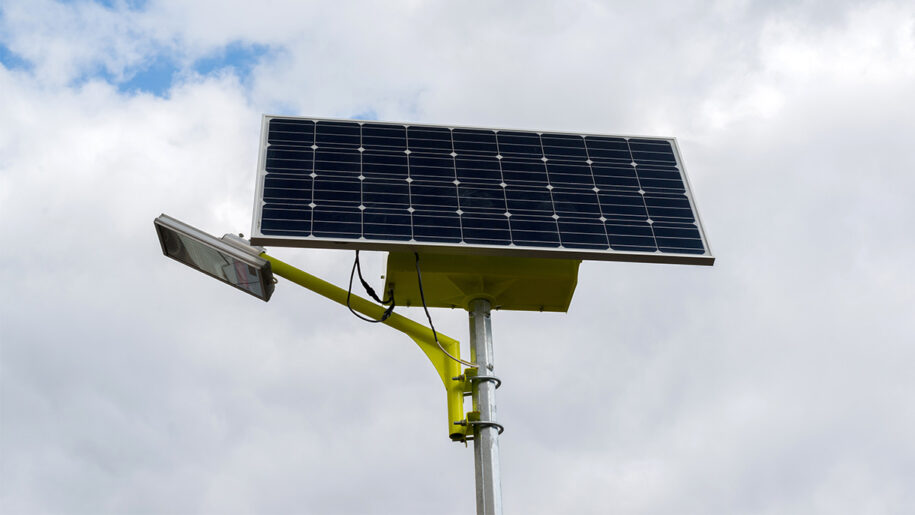10 Things No One Tells You About Buying Solar Street Lights
Introduction
Solar street lights are a brilliant innovation that has drastically changed how we light up our streets. Harnessing the power of the sun, these street lights have emerged as a sustainable and cost-effective solution, reducing carbon footprints and saving electricity bills. But, are they as perfect as they seem? Here are the “10 Things No One Tells You About Buying Solar Street Lights”.
1. Cost Isn’t Just About The Initial Purchase
Long-Term Investment vs. Immediate Cost
Despite the higher upfront costs, solar street lights are an excellent long-term investment. The true cost isn’t just the initial purchase, but also includes maintenance and operational costs. Unlike traditional street lights, solar ones rarely require bulb replacements and consume zero electricity. Over time, these savings add up, making solar lights a financially smart choice.
The Hidden Cost of Installation
Solar street light installation might seem straightforward, but did you know about the potential hidden costs? From installation permits to labor, unexpected expenses can crop up. Therefore, it’s crucial to consider these while budgeting for your solar street lights.
2. The Ins and Outs of Solar Panel Efficiency
The Influence of Climate
Ever wondered how local weather patterns could impact the efficiency of your solar street lights? In regions with less sunshine, solar panels might not produce enough power. While advancements in solar technology have somewhat addressed this, it’s still an aspect to consider before making the purchase.
The Importance of Positioning
The positioning of solar panels significantly influences their efficiency. Improperly angled panels may not receive adequate sunlight, reducing the power output. Therefore, understanding the optimal positioning for your solar panels is vital for getting the most out of your solar street lights.
3. Solar Batteries – They’re More Important Than You Think
Life Cycle and Replacement Costs
While solar panels can last up to 25 years, the same can’t be said for solar batteries. The life cycle of a typical solar battery is between 5 and 15 years. As such, budgeting for periodic battery replacements is something no one tells you when buying solar street lights.
Battery Disposal – An Environmental Concern
Solar batteries aren’t just another component; they also present an environmental concern. Improper disposal can lead to harmful substances polluting the environment. As a buyer, it’s your responsibility to ensure responsible disposal or recycling of solar batteries.
4. The Not-So-Bright Side of Solar Street Lights
Less Light During Winter
Solar street lights might not shine as brightly during winter. As these lights depend on sunlight for power, shorter winter days and cloudy skies can affect their brightness and duration. However, the latest models have features to counteract this effect.
Inconsistent Illumination
Some users report that solar street lights don’t provide consistent illumination. This inconsistency can arise due to poor battery performance or sub-optimal positioning of the solar panel. Understanding these nuances can help you make an informed decision.
5. The Solar Street Light Market Isn’t Created Equal
Quality Matters
The market is flooded with solar street lights of varying quality. While it’s tempting to go for cheaper options, they might not deliver on performance or durability. It’s essential to choose quality over price to ensure a worthwhile investment.
Warranty Woes
Not all solar street lights come with substantial warranty periods. A shorter warranty might mean potential additional costs in the future. It’s always wise to choose a product with a good warranty to protect your investment.
Frequently Asked Questions
- Do solar street lights work on cloudy days?
Yes, solar street lights can work on cloudy days, but their efficiency might be reduced. - What is the lifespan of a solar street light?
While the solar panel can last up to 25 years, other components like batteries may need to be replaced every 5 to 15 years. - Can solar street lights illuminate throughout the night?
Yes, with sufficient charge, solar street lights can illuminate throughout the night. However, this can vary based on weather conditions and the specific model. - Do I need a permit to install solar street lights?
In some cases, yes. It’s important to check with your local authorities before installation. - How should I dispose of my solar batteries?
Solar batteries should be responsibly recycled to prevent environmental pollution. Many manufacturers and waste facilities offer battery recycling services. - Are all solar street lights equally efficient?
No, the efficiency of solar street lights can vary based on factors like panel positioning, local climate, and product quality.
Conclusion
Buying solar street lights is more than just an environmentally friendly decision; it’s an investment that can yield significant returns in the long run. By knowing these “10 Things No One Tells You About Buying Solar Street Lights”, you’re now equipped to make an informed decision. Remember, the key is to understand your unique needs and choose accordingly. Happy solar shopping!
